Don't wanna be here? Send us removal request.
Text
capee
Sebel banget hari ini semua pada ga masuk Yg satu emang lagi bagiannya libur Yang lainnya pada sakit serentak Ya walupun sakit itu ga bisa di pungkiri tapi jadinya nyusahin orang Kalo mau egois mah bisa banget marah2 dan gak masuk juga Karena tau tanggung jawb jadinya harus masuk dong diriku Yang lain udah pada berumah tangga ada yang mom working juga Kalo boleh jujur sih ya menyusahkan banget, iya gue tau situ punya anak dan harus menghendel 2 urusan tapi kalo lo ngorbanin orang di sekitar lo khususnya gue yang kena imbasnya gue merasa dirugikan sih to be honest Gatau kenapa gue malah kayak dituntut harus mengerti ‘ibu-ibu yang kerja” katanya sih gue gatau aja rasanya jadi ibu sambil kerja, hahah gue tau gue blm berumah tangga tapi bisa dipastikan gue ga akan ambil pilihan yang nyusahin orang lain karena ya setiap pilihan yang gue ambil adalah tanggung jawab gue dan gue ga boleh sedikit pun merugikan orang lain atas urusan gue. Gue tau ini pasti banyak kontra dari orang2 ada juga yg setuju ada juga yang marah karena tidak mengerti posisi mom working. Tapi boleh dong dengerin cerita gue kenapa gue begini,,, hehe Ga semua anak muda hidup nya menyenangkan dan tidak ada beban kelurga, gue juga punya tanggungan dan gue bukan dari keluarga kaya yang duit harian dikasih ditengah rantauan jauh dari orang tua, gue juga punya masalah yang sekeras mungkin gue ga bawa ke urusan pekerjaan masa dengan dalih gue paling muda gue disuruh mengerti karena gue ga punyya tanggungan dan dikira hidup gue isinya happy2 aja Ngomongin soal ibu-ibu yang doain gue semoga gue ada di posisi mom working yang susah nya bukan main, gue juga ga bisa pungkiri mom working tuh hebat banget dan susah bgt tapi disini konteksnya bukan bahas keluh kesah dari satu pihak ajaa Gue juga punya keluh yang orang anggap sepele, gue sedih ketika gue pengen aja sedikit di hargai tenaga dan usaha gue, gue cape bgt selama ini mendem sendirian. Gue kira awalnya oh yaa mungkin juga karena gue anak baru disini jadi wajar tapi makin lama makin menjadi gue ga bisa lagi tahan layaknya orang bodoh dong. Gue harap ga ada lagi orang-orang yang menspesialkan siapapun, saling mengerti oke lah sekali dua kali tapi kalo keseringan juga yo toh tau diri lah mbaaak
6 notes
·
View notes
Text
YaAllah jauhkanlah aku dari perusahaan yang gajinya kecil tapi dramanya besar. Aamiin
86 notes
·
View notes
Text
Hampir sebulan nenekku meninggal, rasanya berantakan tapi idup harus tetep jalan. Masa doi meninggal aku harus ikutan. Tapi sering banget lagi ngapain keingetan moment moment yang melibatkan nenek. Ga jarang juga ngebayangin moment di masa depan yang akan berasa banget pas dia udah ga ada.
Gapapa. Berduka ngga ada deadlinenya
50 notes
·
View notes
Text
Jaman masih muda, segala sesuatu yang bikin sakit tuh dicari. Info apa yang sekiranya bisa trigger luka lama buat dikopek, digali. Udah ketemu, cari lebih dalem lagi. Sampe lukanya berdarah lagi. Udah tau sakit, masih juga dilakuin.
Sekarang mah, kalo tau bikin sakit, bikin ga tenang, bikin pikiran. Tinggalin, unfollow, block. Info info apa yang dirasa ga perlu, ya ngga usah dicari-cari. Idup jadi lebih tenang. Soalnya kalo emang harus tau, ada aja cara dunia buat ngasih tau. Ga perlu pake usaha
162 notes
·
View notes
Text
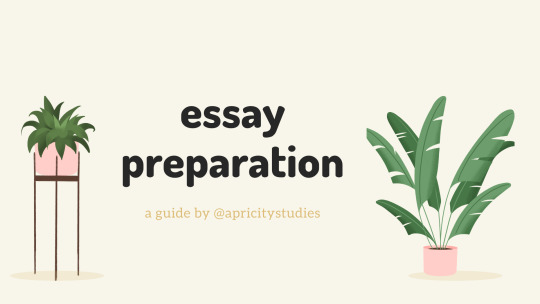
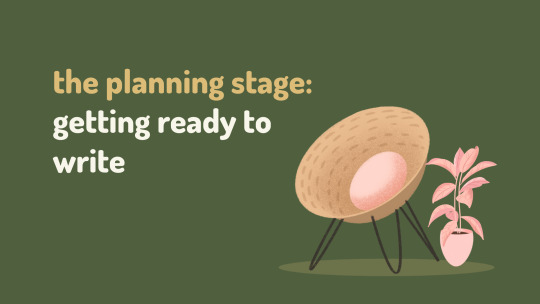
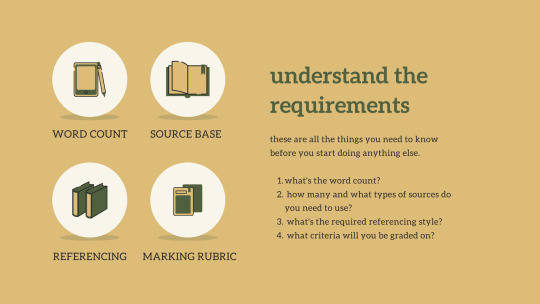
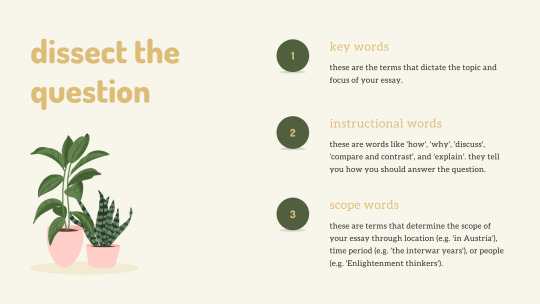
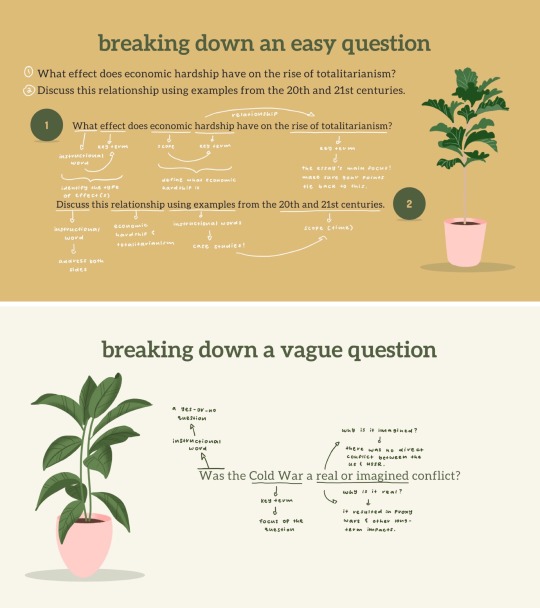

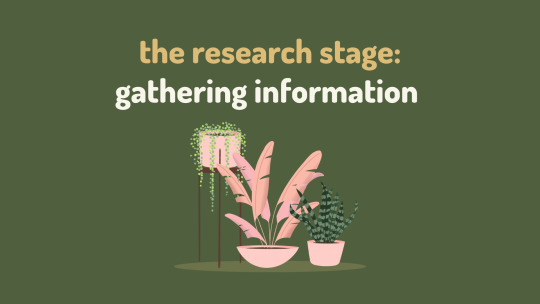
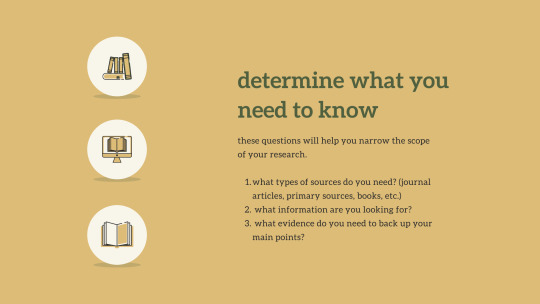
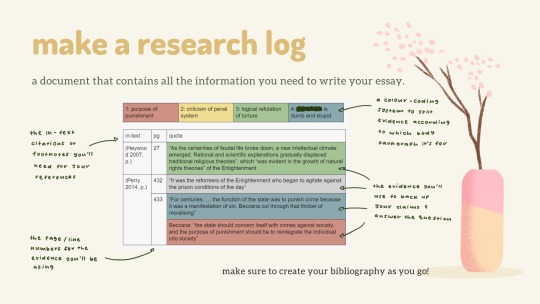
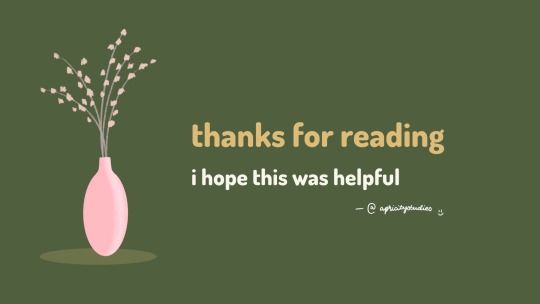
every minute spent on planning saves you ten minutes spent on execution. short essays probably don't require that much preparation beforehand, but if you're writing something longer you should probably spend some time planning first. this is the process i go through when planning my essays, and i find it works really well!
14K notes
·
View notes
Text
Preparing for a New Semester
It’s around the start of the semester for many of us, and here are some things you can do now that’ll help you have a good one!
🎯 Think of goals you want to accomplish
Whether it’s personal, financial, academic, etc., listing down specific, actionable goals will help you improve yourself and give you something to work towards. Reflecting on last semester/year also helps.
📚 Finalize courses and plan future courses
Some colleges (and even some high schools?) have a period during which you can go ‘course shopping’ and audit classes you want to take. But regardless of whether you’re still trying things out or have already finalized your courses, it’s important to keep track of your requirements.
You can do this however you think is best - I have a google sheet with the classes I’ve taken/plan to take and when I took/ plan to take them, along with my major/degree requirements.
At the beginning of the semester, I review my four-year college plan. I rethink the cohesiveness of my course combinations and whether or not I still want to take the courses I’ve listed (this mostly applies to major electives), as well as when I think is best to take each of these courses. I’ll also run this by my advisor to make sure everything’s good.
🎮 Create a game plan for each course
Based on the syllabi and my experience with the first couple weeks of the course, I’ll create a plan that’ll hopefully help me do well in the course. This includes planning
What kind of studying I’ll have to do (e.g. make flashcards? write formula sheets? keep handwritten notes or typed ones?)
How I’ll tackle assignments (e.g. do one problem from the problem set every day? work on projects over the weekend? meet with friends to go through the homework?)
How I’ll organize course material (e.g. how will I organize my digital files? will I need to keep physical papers and notes in a binder? how many sections will I need in my notebook?)
💡 Plan your ideal weekly schedule
I combine findings from my game plan and my goals for the semester to craft an ideal weekly schedule. After factoring in fixed meeting times like lectures, discussions, weekly club meetings, and meal times, the rest of my schedule is filled with time blocks, and is sort of a hybrid between regular time-based scheduling and flexible time blocking.
I try not to make things super specific, e.g. I’d plan for 2 hours of studying then a 30 minute break, but what I actually do with the 2 hours depends on what I need to get done that day. This leaves room for spontaneity, but of course, you could always plan things by the minute if that’s what you prefer.
📅 List important dates in a calendar
These are mostly exams and breaks, but what’s also really helpful is listing out all the dates when assignments are released and due so that you can budget your time and energy towards working on those assignments.
For example, if I find out I’ll have 3 problem sets due the same day, I know I’ll probably have to do a bit of each every day during the week before they’re due.
However, if I have one homework due Tuesday, and another due Friday, I’ll probably spend more time on the weekend working on the Tuesday homework, and more time during the week working on the Friday homework.
🛒 Buy supplies
After going to my classes and finalizing my schedule, I’ll get the textbooks I need from amazon/chegg/online/the university store (as a last resort), as well as any stationery I don’t already have stocked up from the previous semester.
It’s helpful to go to class the first day and ask about the textbook because some professors, even though they assign a book, they’ll say it’s fine if you don’t have it, maybe because the lectures/lecture slides are comprehensive enough, or the library has many copies you can borrow.
In addition to that, there are some classes for which a textbook is assigned but is only used for reference, i.e. for additional explanation. In this case, I’d ask my friends or other people I know who have taken the course and see if they think the textbook’s useful.
Some classes also have special software that’s required, so I’d look into getting those. E.g. some classes use iClicker Reef which is like an online polling system that you have to subscribe to. Or for programming classes, different languages may require different environments, so I’d spend time setting things up on my laptop. This can take quite a while sometimes, and small errors in setting up can have pretty big consequences, so I’ll try to do this as thoroughly as I can.
🗑 Clean
It’s ironic that this is at the end of the list, but cleaning is one of the first things I do once I get back on campus. I’ll organize my digital files, clean my room, tidy my desk, keep last semester’s material in storage, etc. It’s always good to have the things you already have in order before you add/get more things.
Note: All the organizational tasks are in no way fixed. You should update each of them as you see fit, i.e. when you get more information as the semester progresses.
2K notes
·
View notes
Text
100 Adjectives in Korean
괜찮다 - Alright, Okay
화나다 - Angry
짜증나다 - Annoyed
나쁘다 - Bad
아름답다 - Beautiful
크다 - Big
쓰다 - Bitter
심심하다 - Bored
지루하다 - Boring, Dull
씩씩하다 - Brave
싸다 - Cheap
싸늘하다 - Chilly, Frosty
통통하다 - Chubby
깨끗하다 - Clean
흐리다 - Cloudy
춥다 - Cold (Weather)
차갑다 - Cold, Icy, Chilly (Touch, objects)
편하다 - Comfortable
편리하다 - Convenient
시원하다 - Cool, Refreshing
귀엽다 - Cute
축축하다 - Damp, Clammy, Wet
습하다 - Damp, Humid, Moist
맛있다 - Delicious, Tasty
다르다 - Different
어렵다 - Difficult
더럽다 - Dirty
건조하다 - Dry
이르다 - Early
쉽다 - Easy
당황하다 - Embarrassed
비어 있다 - Empty
비싸다 - Expensive
빠르다 - Fast
뚱뚱하다 - Fat, Overweight
기름지다 - Fatty, Greasy, Oily
적다 - Few, Little
신선하다 - Fresh
가득하다 - Full, Crammed
젖다 - Get wet, Damp
기쁘다 - Glad, Happy
잘생기다 - Good looking
착하다 - Good-natured, Nice
좋다 - Good, Fine
행복하다 - Happy
딱딱하다 - Hard, Stiff
건강하다 - Healthy
높다 - High
뜨겁다 - Hot (Touch, objects)
덥다 - Hot (Weather)
배가 고프다 - Hungry
불편하다 - Inconvenient
재미있다 - Interesting, Fun
복잡하다 - Jammed, Crowed
늦다 - Late
적다 - Less
많다 - Lots, Many
시끄럽다 - Loud, Noisy
비열하다 - Mean, Nasty
촉촉하다 - Moist
좁다 - Narrow
새롭다 - New, Fresh
재미없다 - Not interesting, Not fun, Boring
맛없다 - Not tasty
오래되다 - Old (Objects)
예쁘다 - Pretty
조용하다 - Quiet
슬프다 - Sad
짜다 - Salty
같다 - Same
무섭다 - Scary
날카롭다, 뾰족하다 - Sharp, Pointed
수줍다 - Shy
아프다 - Sick, Painful
비슷하다 - Similar
깡마르다 - Skinny
졸리다 - Sleepy
날씬하다 - Slim, Slender
미끄럽다 - Slippery
느리다 - Slow
작다 - Small
똑똑하다 - Smart, Clever
부드럽다 - Soft
말랑하다 - Soft, Tender, Ripe
시다, 시큼하다 - Sour
맵다 - Spicy
강하다 - Strong
튼튼하다 - Strong, Sturdy
멍청하다 - Stupid, Foolish
놀라다 - Surprised
달다, 달콤하다 - Sweet
목이 마르다 - Thirsty
피곤하다 - Tired, Exhausted
못생기다 - Ugly
불편하다 - Uncomfortable
급하다 - Urgent
따뜻하다 - Warm
약하다 - Week, Feeble
이상하다 - Weird, Strange
넓다 - Wide, Broad
11K notes
·
View notes
Text
deeppp😭😭
“Loving someone who unquestionably isn’t in love with you is a whole new level of self-destruction.”
— Rida Aamina
3K notes
·
View notes
Note
Do you have any tips for writing an essay?
I don’t know about tips, but I can share my process of essay-writing for literature and philosophy courses. I use MHRA referencing. I have written on essays and writing style before here: [x]
1. Deciding on a topic – this seems obvious but I always try and choose a topic which is interesting, or inspiring (or that I disagree with and makes me angry).
Start thinking as soon as possible about possible arguments. If there is an essay question or quote to respond to, underline key terms and make them the starting point for research.
2. Reading and research – write down every quote relevant to the essay topic, both primary and secondary reading, in a document with annotations and thoughts on each one, as well as the full reference. I usually start by defining my terms, then branch out from there.
‘It seems to me the most sensible answer is this: approach two or three of the most general critical texts immediately, just to get an idea of the background against which your author moves. Then approach the original author directly, and always try to understand exactly what he says. Afterwards, explore the rest of the critical literature. Finally, return to examine the author in the light of the newly acquired ideas. But this advice is quite abstract. In reality, students tend to follow the rhythm of their desire, and often there is nothing wrong with consuming texts in a disorderly way.’Umberto Eco, How to Write a Thesis (Cambridge: MIT Press, 2015), p. 103.
3. Planning – think about the structure before starting to write. Essays usually have:
an introduction
a critical framework (this may be defining terms, or situating your argument in relation to other works on the same topic)
analysis
conclusions
There might be a section before concluding which revisits the second section in light of analysis. In an essay of 5,000 words, 1,000-2,000 words might be the introduction and critical framework, followed by 2,000 words of analysis and between 500 and 1,000 words to conclude. Equally weighted sections should make an essay seem well balanced and paced.
I usually give myself lots of helpful section headings to keep the essay structure from going astray. I even write instructions: ‘write a sentence or paragraph here about…’, ‘don’t forget to try and work in…’. This also means you won’t start with a blank page.
4. Writing – I start either in my analysis section or in the critical framework. These are the main sections of the essay. I always try to define the terms I use as clearly as possible, and situate my argument within the field (i.e. argue with other writers on the same topic). Write conclusions and introductions last to frame the essay. Footnote and reference during the writing process.
Analysis paragraphs should have an argument, a quote to back it up, an explanation of how the quote backs up the argument, then a link to the next paragraph. UK students often use the acronym PEEL – Point, Evidence, Explanation, Link. It works in most cases.
5. Editing – reading aloud helps, as does proofreading (especially if done by someone else, or printed rather than on a screen). Taking a day away can give clarity. Beware of over-editing! : - )
Book recommendations:
Hazel Hutchinson, Essays and Dissertations Made Easy
Strunk and White, The Elements of Style
Umberto Eco, How to Write a Thesis
Brian Dillon, Essayism
2K notes
·
View notes
Note
Hi! I was wondering how you go about finding references and resources to brainstorm with or use within your papers. As in, when you have an essay question, how do you go about finding appropriate and relevant reference material? Do you have specific places you visit or use to acquire these resources? Thank you for your time and have a great day! :)
On writing essays, part i
On writing essays, part ii
I think essay questions – particularly at university-level – are supposed to act as training for research methods, so everyone develops a different process.
‘The student can meander, alternating his objectives, provided that a thick web of personal notes, possibly in the form of index cards, keeps track of these “adventurous” wanderings.’
Umberto Eco, How to Write a Thesis (Cambridge: MIT Press, 2015), p. 103.
Eco provides an extremely detailed method for conducting research (even imagining himself as a student with limited access to resources) so I recommend reading his book for in-depth advice. My process is:
When reading primary texts, even for the first time, bookmark and note interesting passages that raise questions or thoughts related to the essay topic.
Find an introductory text on the topic (go to the library and look for books on the topic, or just search online) and read it, thinking about how it applies to the primary texts, again making notes.
If another relevant writer (critic) is referenced, note their name and/or the text and find it to read. If they reference another critic, do the same again until I have built some knowledge of what has been written already.

Above: list of names cited in an essay by Paolo Virno. The index is a helpful way to figure out who the dominant and frequently-cited critics are on a particular topic.
Then go to journals for more specific, contemporary reading. Example: if the topic were related to food, I would look at Appetite or Gastronomica. These can be accessed at libraries or through sites like JSTOR.
If I’m stuck I will just keep searching online for books and articles related to the topic until I find something interesting.
That’s as far as I would usually go, except when I’ve written on something like art – exhibition catalogues, documentaries and other specialist texts are very useful.
Hope this helps. : - )
641 notes
·
View notes
Text
ESSAY WRITING AT DEGREE LEVEL: THE BASICS
when i started my undergraduate literature degree my writing was no way near up to scratch. my punctuation and grammar was all over the place, i didn’t know how to properly structure my essays and as a result my ideas were often all over the place. in the second year of my degree i made it my priority to work on this and spent HOURS trying to improve my writing. it took time, a lot of patience and there was a lot of frustration (especially since it wasn’t reflected in my grades until my third year). but, eventually, it really paid off. it’s important to acknowledge that being able to write well can take time and is often not something that comes naturally, but that doesn’t mean you won’t get there in the end.
here are a few things i learnt:
first things first, sort out your punctuation and grammar. these are easy marks to lose and it’s just a matter of practice. firstly, to find out where you’re going wrong go and talk to someone. universities often have writing sessions or one-to-ones aimed at tackling problems like these. this is where you can show them your essay and they can guide you through what you need to improve on (having someone else point out your common mistakes can be really helpful). secondly, find yourself a copy of hazel hutchinson’s how to write great essays and dissertations. this book was my go-to during second year. it covers everything from structure, to punctuation and using secondary sources, so it is a great way of figuring out the basics. another one i’d recommend is my grammar and i (or should that be ‘me’?).
once you’ve got that down, begin to closely read academic essays and secondary sources. whilst these are great means of research, they are also super useful for seeing what an academic essay should look like. take note of the way they structure sentences. what do their introductions look like and how do they shape their ideas? by the end of your degree your essays should essentially be shorter versions of these so it’s a good idea to use them as a base for your own writing.
essay structure: throw out your a-level paragraphs! when i first started my BA, i thought each paragraph was expected to contain a point, evidence and explanation (p.e.e. as it was taught to me in school). what i later learned is that, although this is to some extent true, starting a new point every paragraph makes the essay sound choppy and the argument can be stunted and undeveloped - especially as you’ll be writing longer essays at undergrad. rather than doing this, i ended up making just one or two points throughout the essay and spreading this across a few paragraphs each time, using two or three bits of textual evidence, close analysis and lengthy explanation to develop my argument.
writing is about rewriting. it’s rare that your writing will be as good as it can be after the first draft. try and finish your essay a week before it’s due (although this is not always possible), have a few days off and then look back through it. at this point, i normally print a hard copy, take a highlighter and read it through slowly, highlighting anything that sounds out of place or could be explained further as i go. this way, you can go back through and tighten things, make your sentences smoother, and ensure your argument is as clear as it can be.
finally, and most importantly, don’t - try - to - look - fancy. i can’t stress this enough. too many students think they have to use big words and complicated sentences for their work to sound clever and “academic”. that’s not true!! the most important thing is to be clear and concise. show your intelligence off in your argument, not your writing. your tutors want to be able to understand what you’re saying and for it to be easy to read, so don’t panic if you think your essay sounds too simple or “dumb” because you haven’t used big words - it doesn’t!
1K notes
·
View notes
Text
“MY WRITING SOUNDS CHOPPY”
the part of writing academic essays i really struggle with is making them flow. i always feel like my essays sound somewhat “clunky”, and i’ve been researching ways to correct this. whilst recently reading barbara fine clouse’s book, 265 troubleshooting strategies for writing nonfiction, i came across a chapter on this very subject, and so far it has been unbelievably helpful so i thought it would be a good idea to share it. i’ve listed all the pointers she gives below, however, i have adapted the examples using finnegans wake as i was trying to test it out for myself.
use difference sentence openers—open with a descriptive word:
‘unusually, the diagram is constructed out of four points, rather than three. This introduces…’
‘curiously, Joyce uses multilingual puns to create an image…’
‘interestingly, the interplay between the family adds to a feeling of …’
open with a descriptive phrase:
‘despite my better judgement, it seems that’
‘although the chapter appears frivolous and nonsensical, it is in fact’
open with a subordinate clause: (a dependent word group with a subject and verb):
‘when joyce first wrote the opening chapter of finnegans wake’
‘when the children are first participating in the ‘night lesson’
‘before the parents enter the equation, the children appear to be’
‘if the chapter takes the form of a lecture…’
open with to and the verb:
‘to argue my point convincingly, we must examine Plato’s theory of the cave’
‘to gain an insight into shem’s destructive nature, we should analyse….’
open with the subject:
‘shem’s destructive persona is revealed throughout the text using…’
‘joyce approaches metaphysics through vico’s new science’
‘the diagram is formed of two circles and a triangle, echoing…’
vary the placement of transitions:
‘in addition, joyce seems to be using metaphysics as a means of’
‘shaun’s appearance, on the other hand, is calm and collected, taking on a serious persona as..’
‘the night lesson’s use of education as a tool for understanding metaphysics is, to some extent, reasonable, however…’
combine short sentences:
use one of these words: and, because, but, for, nor, or, so, yet
short sentences (choppy): finnegans wake is ambiguous.
combined: finnegans wake is ambiguous, but its complex style leaves room for interpretation.
follow long sentences with shorter ones and short sentences with longer ones:
‘shem embodies the figure of vico. although he frequently switches place with shaun, he appears to maintain a crazed persona throughout the chapter.
‘shem’s crazed persona appears to embody the traits of vico’s ‘first universals’, for he appears to be driven by his senses with little understanding of reason. this forms the chapter’s complex structure.
use parallel construction:
not parallel: ‘shaun is quick-witted, sharp and he is intelligent.
parallel: shaun is quick-witted, sharp and intelligent.
(barbara fine clouse, 265 troubleshooting strategies for writing nonfiction (pp. 99-102).
4K notes
·
View notes
Photo

~ // 25/04/2017 // ~
So, yesterday I finally finished my practical work class. Which is basically just one big assignment throughout the semester and working in a lab. The semester is almost over but I did it!! With everything that happened to me throughout the semester, including during this final exams week, I’m really proud of myself for finishing this.
871 notes
·
View notes
Text


21.10.19 || coffee and books
A new semester has officially begun. I'm kinda excited but at the same time I'm already dreading the upcoming assignments and exams.
7K notes
·
View notes
Photo
penting!!!

I believe in free education, one that’s available to everyone; no matter their race, gender, age, wealth, etc… This masterpost was created for every knowledge hungry individual out there. I hope it will serve you well. Enjoy!
FREE ONLINE COURSES (here are listed websites that provide huge variety of courses)
Alison
Coursera
FutureLearn
open2study
Khan Academy
edX
P2P U
Academic Earth
iversity
Stanford Online
MIT Open Courseware
Open Yale Courses
BBC Learning
OpenLearn
Carnegie Mellon University OLI
University of Reddit
Saylor
IDEAS, INSPIRATION & NEWS (websites which deliver educational content meant to entertain you and stimulate your brain)
TED
FORA
Big Think
99u
BBC Future
Seriously Amazing
How Stuff Works
Discovery News
National Geographic
Science News
Popular Science
IFLScience
YouTube Edu
NewScientist
DIY & HOW-TO’S (Don’t know how to do that? Want to learn how to do it yourself? Here are some great websites.)
wikiHow
Wonder How To
instructables
eHow
Howcast
MAKE
Do it yourself
FREE TEXTBOOKS & E-BOOKS
OpenStax CNX
Open Textbooks
Bookboon
Textbook Revolution
E-books Directory
FullBooks
Books Should Be Free
Classic Reader
Read Print
Project Gutenberg
AudioBooks For Free
LibriVox
Poem Hunter
Bartleby
MIT Classics
Many Books
Open Textbooks BCcampus
Open Textbook Library
WikiBooks
SCIENTIFIC ARTICLES & JOURNALS
Directory of Open Access Journals
Scitable
PLOS
Wiley Open Access
Springer Open
Oxford Open
Elsevier Open Access
ArXiv
Open Access Library
LEARN:
1. LANGUAGES
Duolingo
BBC Languages
Learn A Language
101languages
Memrise
Livemocha
Foreign Services Institute
My Languages
Surface Languages
Lingualia
OmniGlot
OpenCulture’s Language links
2. COMPUTER SCIENCE & PROGRAMMING
Codecademy
Programmr
GA Dash
CodeHS
w3schools
Code Avengers
Codelearn
The Code Player
Code School
Code.org
Programming Motherf*?$%#
Bento
Bucky’s room
WiBit
Learn Code the Hard Way
Mozilla Developer Network
Microsoft Virtual Academy
3. YOGA & MEDITATION
Learning Yoga
Learn Meditation
Yome
Free Meditation
Online Meditation
Do Yoga With Me
Yoga Learning Center
4. PHOTOGRAPHY & FILMMAKING
Exposure Guide
The Bastards Book of Photography
Cambridge in Color
Best Photo Lessons
Photography Course
Production Now
nyvs
Learn About Film
Film School Online
5. DRAWING & PAINTING
Enliighten
Ctrl+Paint
ArtGraphica
Google Cultural Institute
Drawspace
DragoArt
WetCanvas
6. INSTRUMENTS & MUSIC THEORY
Music Theory
Teoria
Music Theory Videos
Furmanczyk Academy of Music
Dave Conservatoire
Petrucci Music Library
Justin Guitar
Guitar Lessons
Piano Lessons
Zebra Keys
Play Bass Now
7. OTHER UNCATEGORIZED SKILLS
Investopedia
The Chess Website
Chesscademy
Chess.com
Spreeder
ReadSpeeder
First Aid for Free
First Aid Web
NHS Choices
Wolfram Demonstrations Project
Please feel free to add more learning focused websites.
*There are a lot more learning websites out there, but I picked the ones that are, as far as I’m aware, completely free and in my opinion the best/ most useful.
533K notes
·
View notes
Text

I’m currently learning Mandarin (Chinese) at school and self-taught for Spanish. At first, I found that teaching myself a language is very tricky because I struggled and didn’t know where to start. Here are 30 topics that you can get start to learn a new language. Hope this can help!
1. Basic vowels, diphthongs, and consonants (different languages have different ways to pronounce them)
2. Greeting phrases (hello, how are you, what’s your name, how old are you)
3. Polite phrases (thank you, nice to meet you, i’m sorry, you’re welcome, excuse me, please)
4. Basic people (girl, boy, child, adult, he, she, I, me, you)
5. Number (1-1000, 1 million, phone number, house number)
6. Time (morning, afternoon, evening, night, o'clock, weekdays, months, years)
7. Basic verbs (drink, eat, speak, say, work, study)
8. Family (grandparents, parents, siblings, form sentence to introduce members in the family, where do you live)
9. Sentence structure (learn how to form one independent sentence)
10. Negative sentence structure (i’m not, i don’t have, i don’t know)
11. Question phrases (what, when, where, why, who, how, do you…)
12. Meals (breakfast, lunch, dinner, snack, brunch)
13. Food (vegetable, meat, fruits, noodles, rice, dessert, fast food, adjective related to food like delicious, sour, sweet, bitter, spicy)
14. Drinks (tea, milk, coke, juice, smoothie, soda)
15. Colors (red, orange, yellow, green, blue, violet, brown, grey, black, white)
16. Emotions (happy, angry, sad, bored)
17. Transportations (bicycle, walk, bus, car, motorcycle, subway, train)
18. Clothing (accessories, shirts, t shirts, pants, jeans, shorts, dresses)
19. Directions (around, left, right, front, back, north, south, east, west)
20. Basic animal (dog, cat, cow, chicken, bear, fish)
21. Traveling (countries’ names, hotels, culture, customs, traditions)
22. Weather (sunny, rainy, snow, temperature, hot, cold, cool)
23. Seasons (spring, summer, fall, winter)
24. State of being (i’m sick, i’m uncomfortable, i’m hungry, i’m thirsty)
25. Hobbies (drawing, singing, dancing, reading, writing, watching movies, listening to music, playing musical instrument)
26. Sports (swimming, soccer, volleyball, basketball, hockey, badminton, tennis, baseball, softball)
27. School (subjects like art, science, literature, math, classes, courses, when school starts/ends, classroom, exam, tests, book, pens, calculator, notebook)
28. More verbs (wake up, go to sleep, go to school, cook, play sports, buy)
29. Technology (phones, laptop, social media, app, benefits, disadvantage, internet, TV, chat, video call, call)
30. Occupations (doctor, nurse, architect, businessman, accountant, chef)
31. Past tense (i did…, i was…, i traveled…., yesterday, last week, last year)
32. Future tense (i will, i am going to, tomorrow, next week, next year)
33. Complex sentence structure (if…,then…; besides…, also…;however..,.;but)
34. Locations (school, building, office, cinema, shop, shopping center, library)
35. Body parts (eye, nose, mouth, ear, head, hair, arm, hand, leg, foot, teeth)
36. Description (tall, short, long, thin, fat, skin/hair/eye color, adjective like funny, intelligent, beautiful, handsome)
37. Environment (earth, environment, trees, trash, turn off light/electricity, plastic bags, pollution, recycle, climate change)
38. Cooking (add, stir, boil, grill, fry, chop, mix, bake)
39. Festivals (new year holiday, Christmas holiday, easter, halloween)
40. Preposition (above, below, under, next to, in front, at the back, opposite)
905 notes
·
View notes
